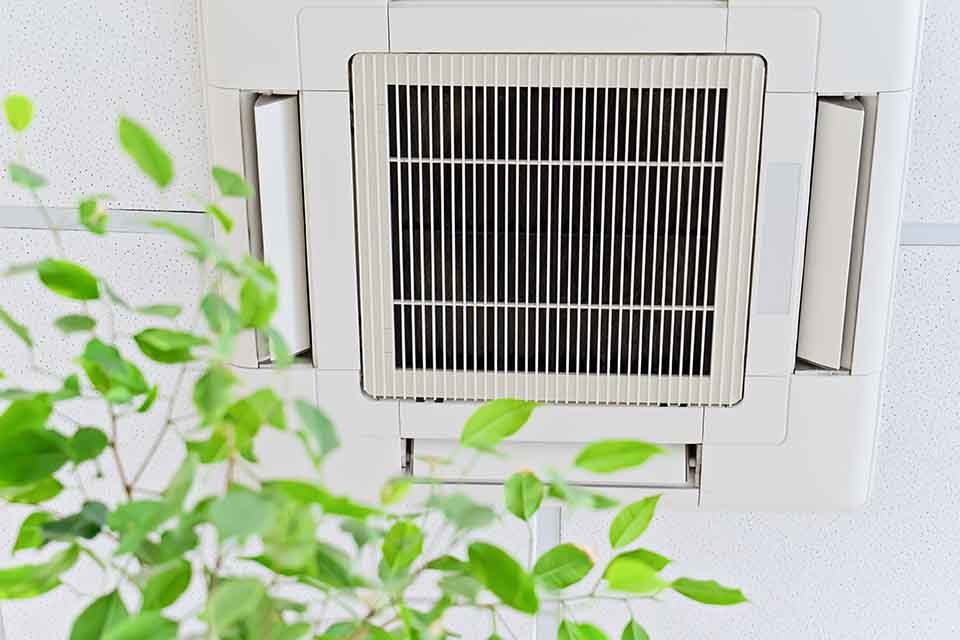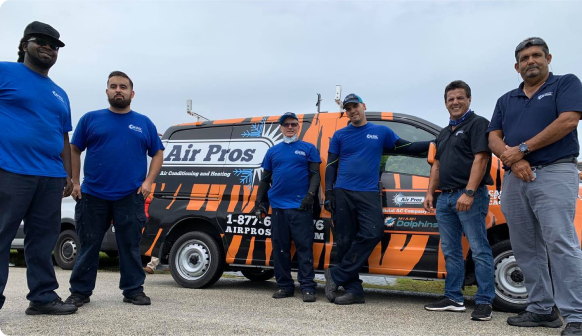It pays to improve your home or business’ indoor air quality in order to lessen the risk of being exposed to bacteria, viruses, and other pathogens. Take into account that the EPA states that indoor air can end up being dramatically more polluted than outdoor air.
When indoor air is not properly filtered and outdoor/indoor air mixing is severely limited, it can result in an increase in indoor allergy symptoms, as well as the symptoms of certain lung conditions.
Based on early reports, children, the elderly and those with certain pre-existing conditions are most susceptible to the effects of indoor air pollution. It is recommended to install HEPA filters and use UVC purifiers to help improve your indoor air quality (IAQ). By following the advice of air quality and health experts and working with the Air Pros team, you can breathe easier and feel better about the health of your indoor air.
Understanding Indoor Air Quality
When discussing indoor air quality, this focuses mostly on the purity of the air and how much particulate matter is in that air. Particulate matter includes mold, dust, pet dander, pollen, smoke, odors, bacteria, and viruses. When there is a significant number of particles floating in the air in your home or business, those inside the premises may experience an increase in indoor allergy symptoms, including congestion, sinus pressure, watery eyes, and headaches.
For people with certain lung conditions, including COPD and asthma, they may notice an increased need to use their inhalers. When viruses and bacteria infiltrate the air of commercial buildings and remain there, the management team and staff members of the building may notice an increase in missed days due to illnesses.
UV Air Purifiers for Destroying Viruses
UV air purifiers can destroy viruses. The type of UV light used in these types of purifiers is UVC light. While UVC light is the most damaging type of ultraviolet radiation, it is completely filtered out by the Earth’s atmosphere, which means it is extremely rare to find it naturally present. With that being said, UVC light has been created artificially, and it is used in sterilization processes and for destroying bacteria and viruses.
UVC light is extremely damaging to DNA. This means that when bacteria and viruses are exposed to UVC light, they are effectively killed because they cannot reproduce. HVAC systems can be retrofitted with UV air purifiers that project UVC light in order to kill bacteria and viruses that make their way into the HVAC system and to improve your indoor air quality.
Improving Indoor Air Quality with HEPA Air Filtration
HEPA stands for High-Efficiency Particulate Air, and HEPA air filters were originally designed in the 1940s to help prevent the spread of radioactive dust in facilities housing nuclear material. Today, HEPA air filters can be found in air purifiers, vacuum cleaners, and even as HVAC air filters. They are touted as being able to remove 99.97 percent of airborne contaminants, including dust, dirt, mold spores, pollen, pet dander, and bacteria. In fact, they typically remove everything from the indoor air that is .3 microns or larger, which includes bacteria and larger viruses. When it comes to HEPA air filters, it is important to note that most residential HVAC systems are not designed to use them, and their use can greatly reduce the flow of air through the system, resulting in the air conditioner working harder than normal. Commercial AC systems can be designed to work with HEPA air filters
The good news is that if HEPA air filters are not recommended for use with a particular HVAC system, they can be retrofitted into existing HVAC units or installed as part of a separate air filtration system to help improve your indoor air quality.
Call Our Air quality Team
Call the Air Pros team or schedule a service today if you want to use one of our air filtration systems. We will come out on time to install one that best fits your home. Let Air Pros use our expertise in providing the right filtration system so that you and your family can breathe cleaner air.










